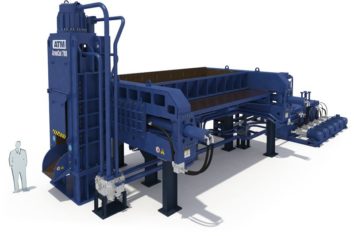Supply Chain: A Comprehensive Guide to Understanding and Optimizing Business Operations

Introduction:
Supply chain management plays a crucial role in ensuring the smooth flow of goods and services from raw material suppliers to end consumers. It involves the coordination and integration of various activities, including sourcing, procurement, production, logistics, and distribution. This article aims to provide an in-depth understanding of supply chain management for individuals interested in this topic.
What is Supply Chain Management?

Supply chain management (SCM) encompasses the design, planning, execution, control, and monitoring of all activities involved in delivering products or services to customers. It aims to optimize operations, reduce costs, and enhance customer satisfaction. A well-managed supply chain enables businesses to achieve competitive advantage by meeting customer demands efficiently.
The Evolution of Supply Chain Management:
1. From Traditional to Modern Supply Chains:
Supply chains have evolved significantly over time. In the past, supply chain management was mainly focused on optimizing internal processes within individual organizations. However, as markets became more globalized and complex, companies realized the importance of collaboration and coordination across multiple entities. This led to the emergence of modern supply chains that encompass various stakeholders, including suppliers, manufacturers, distributors, and retailers.
2. Technological Advancements:
The advent of technology has revolutionized supply chain management. Innovations such as barcode scanning, radio-frequency identification (RFID), enterprise resource planning (ERP) systems, and electronic data interchange (EDI) have enabled real-time visibility and seamless information exchange throughout the supply chain. These technologies have enhanced efficiency, accuracy, and decision-making capabilities.
3. Globalization and Outsourcing:
Globalization has expanded supply chains beyond national boundaries. Companies now source raw materials, manufacture components, and distribute finished products from different countries. This trend has led to increased complexity and challenges in managing global supply chains, including geopolitical risks, transportation logistics, cultural differences, and legal regulations. Outsourcing has also become prevalent, allowing companies to focus on core competencies while leveraging specialized suppliers.
Optimizing the Supply Chain:
To achieve supply chain excellence, businesses must focus on the following key areas:
1. Demand Planning and Forecasting:
Accurate demand planning and forecasting are critical for avoiding stock-outs or excess inventory. Advanced analytics techniques, such as predictive modeling, machine learning, and artificial intelligence, can help analyze historical data and market trends to forecast demand more accurately.
2. Supplier Relationship Management:
Building strong relationships with suppliers is essential for ensuring a reliable and efficient supply chain. Collaboration, open communication, and mutual trust can lead to beneficial partnerships that drive innovation, reduce costs, and improve overall performance.
3. Inventory Management:
Optimizing inventory levels is crucial for balancing cost and customer service. Just-in-time (JIT) and lean principles can help minimize carrying costs while ensuring the availability of necessary products. Inventory optimization techniques, such as safety stock calculation and economic order quantity (EOQ) analysis, aid in making informed decisions.
4. Transportation and Logistics:
Efficient transportation and logistics play a vital role in ensuring timely delivery and cost optimization. Utilizing route optimization software, adopting intermodal transportation, and evaluating carrier performance can help streamline operations and reduce transportation costs.
5. Risk Management:
Identifying and mitigating supply chain risks is crucial to maintain resilience in the face of disruptions. Companies need to anticipate and prepare for potential risks such as natural disasters, supplier bankruptcies, political unrest, and cyber-attacks. Strategies for risk assessment, contingency planning, and building alternative sourcing options are essential.
Conclusion:
Supply chain management is a complex and ever-evolving field that influences the success of businesses across industries. Understanding the concepts, historical developments, and best practices in supply chain management is essential for both individuals and companies aiming to enhance operational efficiency, reduce costs, and achieve customer satisfaction. By adopting innovative technologies, collaborating with partners, optimizing inventory, and effectively managing risks, businesses can achieve a competitive edge in today’s dynamic and interconnected marketplace.
References:
– Chopra, S., & Meindl, P. (2020). Supply Chain Management: Strategy, Planning, and Operation. Pearson Education.
– Christopher, M. (2016). Logistics & supply chain management. Pearson UK.
FAQ
How has supply chain management evolved over time?
What are some key areas for optimizing the supply chain?
What is supply chain management?
Flere Nyheder
Dødsbo rydning københavn sådan får du overblik og professionel hjælp
Introduction: Supply chain management plays a crucial role in ensuring the smooth flow of goods and services from raw material suppliers to end consumers. It involves the coordination and integration of various activities, including sourcing, procure...
09 januar 2026
Find den rette elektriker i Rudersdal
Introduction: Supply chain management plays a crucial role in ensuring the smooth flow of goods and services from raw material suppliers to end consumers. It involves the coordination and integration of various activities, including sourcing, procure...
03 september 2025
Container tilter: effektivitet i affaldshåndtering og ressourcegenanvendelse
Introduction: Supply chain management plays a crucial role in ensuring the smooth flow of goods and services from raw material suppliers to end consumers. It involves the coordination and integration of various activities, including sourcing, procure...
04 august 2025
ITIL 4 Certificering: Vejen til effektiv IT-service management
Introduction: Supply chain management plays a crucial role in ensuring the smooth flow of goods and services from raw material suppliers to end consumers. It involves the coordination and integration of various activities, including sourcing, procure...
02 juli 2025











